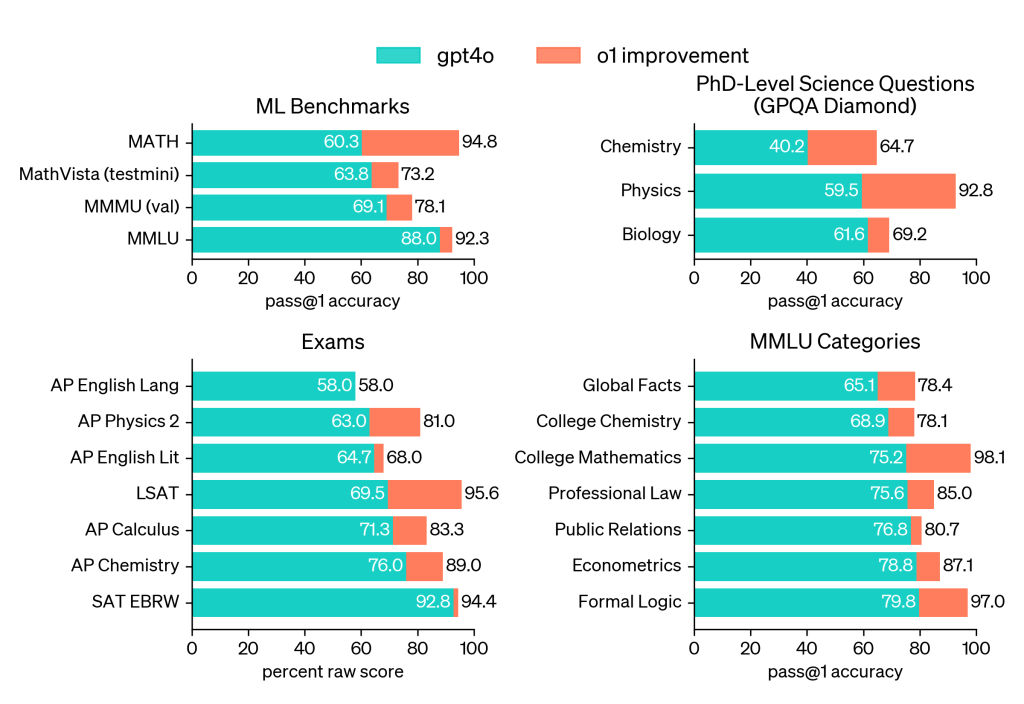OpenAI’s recent unveiling of the O1 Preview and O1 Mini models marks a significant milestone in the evolution of artificial intelligence. As someone deeply invested in the AI industry, I see this development as a leap forward in machine reasoning and problem-solving capabilities that could reshape various sectors.
The O1 models have demonstrated remarkable improvements in complex reasoning tasks. Their prowess in mathematical problem-solving, advanced coding challenges, and analytical reasoning is particularly noteworthy. These enhancements aren’t just incremental; they represent a substantial advancement over previous models like GPT-4. In comparative tests, the O1 Preview has outperformed GPT-4 in mathematical reasoning tasks, showcasing its superior ability to handle complex computations and algorithms.

What’s exciting about these models is their potential application across diverse fields. For software developers, the enhanced coding capabilities mean more efficient code generation and debugging processes. In scientific research, the advanced analytical reasoning can aid in data interpretation and hypothesis testing. Essentially, any industry that relies on complex problem-solving stands to benefit from these advancements.
Accessibility is another key aspect of OpenAI’s strategy with the O1 models. By making the O1 Preview available through ChatGPT Plus subscriptions and API access, and offering the O1 Mini via API, OpenAI is ensuring that a wide range of professionals and organizations can integrate these powerful tools into their workflows. This democratization of advanced AI capabilities can accelerate innovation and productivity across industries.
The introduction of the O1 models also highlights OpenAI’s commitment to pushing the boundaries of what AI can achieve. It’s a testament to the rapid pace at which AI technology is evolving. As these models become integrated into more applications and services, we can expect to see new forms of human-AI collaboration emerging. This could revolutionize how we approach complex challenges in education, where AI could assist in personalized learning, or in healthcare, where it could enhance diagnostic processes.
As we stand on the cusp of this new era in AI, it’s important for professionals to consider how these advancements can be harnessed within their own fields. The O1 models represent not just a technological achievement but an opportunity to rethink and improve processes that have remained static for years.
I encourage everyone in the industry to explore the capabilities of the O1 models and consider the possibilities they unlock. Let’s engage in discussions about how we can leverage this technology to drive innovation and solve complex problems more effectively.
Feel free to share your thoughts or experiences with AI advancements in the comments. Together, we can shape the future of our industries by embracing the potential of these groundbreaking tools.
